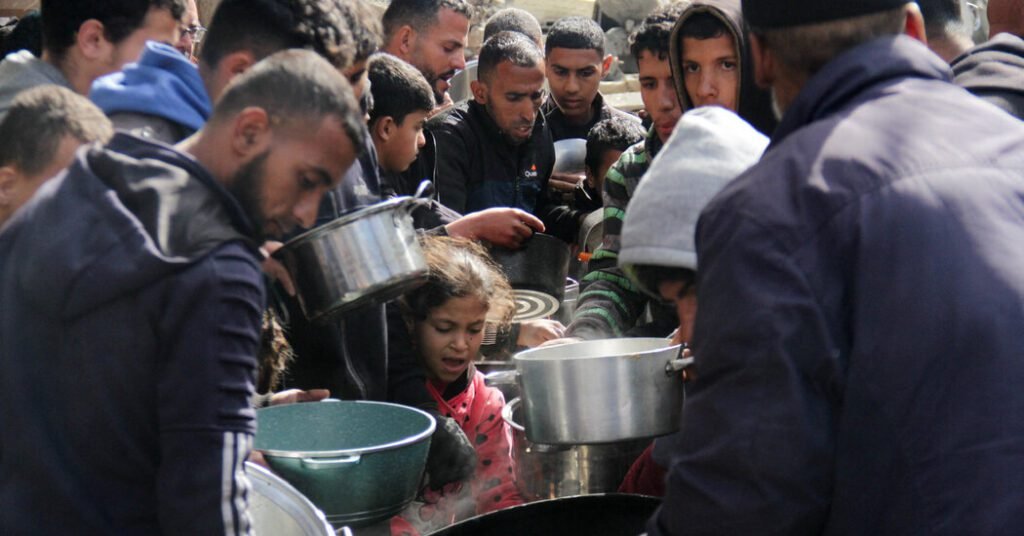Since 2004, when the system was created, there have been two famines by this definition. In 2011, the IPC declared famine in areas of Somalia that had endured decades of conflict. Years of drought have devastated the agricultural sector and the economy, forcing many people to flee their homes in search of food. At the same time, a group of Islamist rebels prevented the starving people from leaving and drove out Western aid organizations. In total, about 250,000 people died.
Six years later, famine was declared in parts of South Sudan. The country had suffered years of drought, but the UN said the famine was man-made. Millions of people had fled a civil war, devastating the country’s economy, and rebel forces and government soldiers blocked aid and seized food trucks. Tens of thousands died.
Gaza is small and mostly urban, so help is close at hand.
Gaza is only 25 miles long and largely urban, and there is no shortage of food on the other side of its borders, with Israel and Egypt.
However, humanitarian organizations have found it difficult to do their work. Six months of war included the murders of many aid workers, including seven from World Central Kitchen, the aid group founded by chef José Andrés. These employees were killed by an Israeli drone strike on April 1 after delivering tons of food to a warehouse.
There is a sharp dispute in Gaza between the UN and the Israeli government over how much aid enters Gaza each day, but aid groups say they need better access, particularly in northern Gaza. Israeli authorities have repeatedly denied aid convoys permission to enter Gaza, they say.
Arif Husain, chief economist at the World Food Programme, said what made the situation in Gaza so shocking was the scale and severity of the crisis and how quickly it had developed.
Israel claims it has set no limits on aid. Critics disagree.
Critics of the way Israel is waging the war say the hunger crisis stems in large part from Israeli restrictions on where trucks can enter and a burdensome inspection process. Some have accused Israel of slowing aid to punish Gazans for the October 7 attack.
Israeli officials say they have set no limits on the amount of aid that can flow into Gaza. They blame the UN, particularly UNRWA, the main agency helping the Palestinians, for failing to distribute aid effectively.
COGAT, the Israeli agency responsible for coordinating aid deliveries to Gaza, says it has “increased” deliveries in recent days and is opening an additional entry point in northern Gaza. More generally, the Israeli government holds Hamas responsible for all the suffering of civilians in Gaza. (UNRWA said last month that Israel had denied the group access to northern Gaza, although Israel has disputed that claim.)
Governments around the world have urged Israel to quickly address the crisis. President Biden warned last week that the United States could withhold support for Israel if it fails to ensure adequate aid and protect civilians. On Wednesday, Mr. Biden said the steps Israel had taken since then “were not enough.”
Adam Sella contributed to the report.

